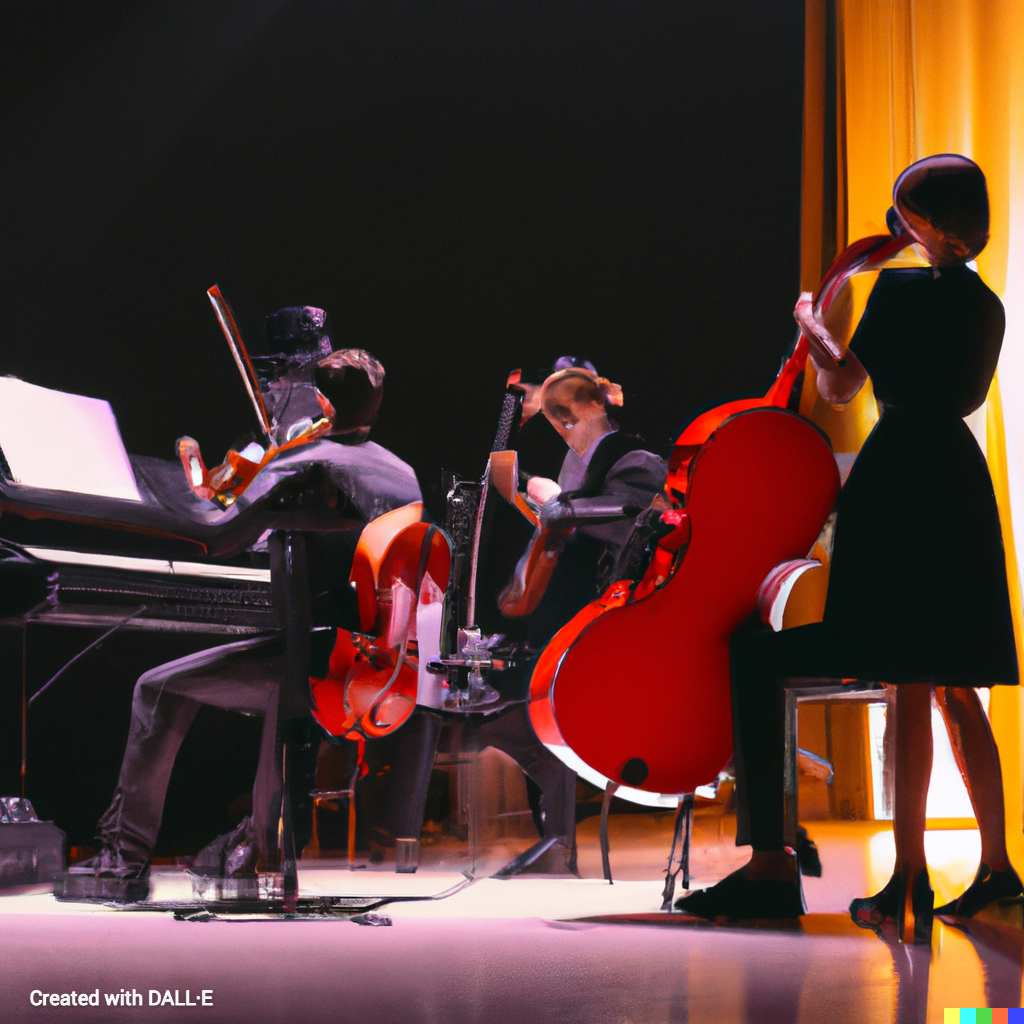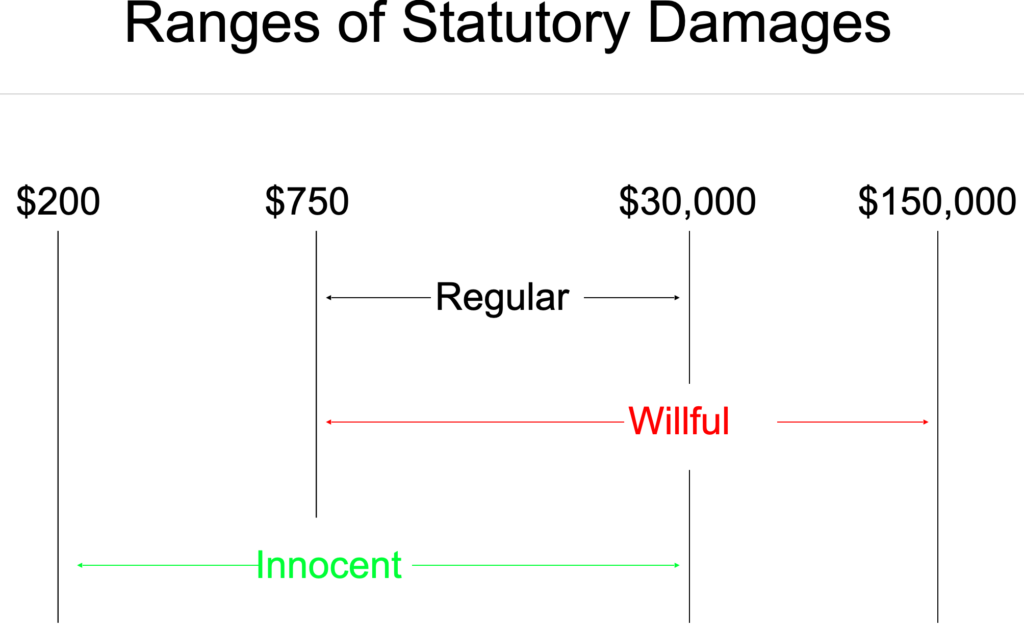
With some exceptions, every public venue that plays popular music for its customers – concert venue, bar, restaurant, shopping mall or health club – needs to enter into a blanket license agreement with ASCAP, BMI and SESAC, the performing rights organizations (PROs) that pay public performance royalties to songwriters and publishers.
Occasionally a club will fail to join a PRO, ignore warnings and be sued for copyright infringement.
Here’s a current example in which a club did sign a license with ASCAP, but allegedly failed to pay ASCAP the license fees.
Universal Music v. Calvin Theater
Two music publishers have sued Calvin Theater and its owner/manager, Eric Suher, for violating public performance rights in six compositions. Calvin Theater is a music venue in Northampton, Massachusetts, and the suit was filed in the Federal District Court for the District of Massachusetts. ASCAP manages the public performance rights for these songs.
We don’t know why Calvin Theater failed to pay ASCAP. However, the publishers’ claim is that because the venue is in breach the agreement is not in effect and the Theater has no copyright license.
Based on the allegations in the complaint this case is a good opportunity to do a short tutorial on the intersection of the music industry and copyright law.
The Infringement Involves “Musical Compositions,” Not “Sound Recordings”
Every musical work can have two copyrights – the musical composition (melody, lyrics) and the sound recording. The owners can be different, and usually are – it’s common for a record company to own the copyright in the “master” sound recording and a publishing company to own rights in the musical composition.
Calvin Theater involves the public performance of musical compositions – there is no allegation that sound recordings were illegally copied. The complaint doesn’t identify the owner of the sound recordings, nor does it need to do so.
The complaint doesn’t provide any detail about how the compositions were performed. Were the works performed by a live band? Did the Calvin Theater play a CD or stream the songs? Were the songs played over a radio? Which versions of the songs were played – the originals or cover recordings? The complaint doesn’t tell us, but it doesn’t matter – regardless of how the songs were played, the owners of the copyrights in the musical compositions are entitled to a public performance royalty. The music club should have paid that through a contract with ASCAP.
What Is The Right of Public Performance?
One of the exclusive rights held by owners of musical compositions is the right to publicly perform a work. The Copyright Act defines public performance broadly – “to perform … at a place open to the public or at any place where a substantial number of persons outside of a normal circle of a family and its social acquaintances is gathered.”
If a public venue plays popular music for its customers, it needs a public performance license. If it plays music and doesn’t have one, it’s a copyright infringer.
If you’re wondering about the public performance rights of owners of sound recordings – they don’t have one, except for digital audio transmissions. 17 U.S. Code § 106
To contact Lee Gesmer fill out the form below.
What Are Publishing Companies?
The plaintiffs in this case are publishing companies. What’s that, you ask?
A lot of composers don’t have the time or inclination to deal with the music business. Instead, they assign ownership of their compositions to a publishing company to manage. There are many publishing companies, and the largest own publishing rights to thousands of songs. Two large publishers are the two plaintiffs in this case – Universal Music Publishing and Primary Wave.
What Are Performing Rights Organizations?
The owners of compositions – whether publishing companies or the composers themselves – can’t track and police the thousands of public venues where their compositions may be performed. A complex system has evolved to deal with this – they register their compositions with one of the PROs – ASCAP, BMI or SESAC. In turn, the PROs enter into blanket license agreements with the clubs and restaurants.
The clubs pay the PROs, the PROs pay the publishing companies, and the publishing companies pay the composers. This is all regulated by contracts – thousands and thousands of contracts.
It’s even more complicated than it sounds. For a deeper dive see Songtrust’s “Modern Guide to Music Publishing.“
The Publishing Companies Are Assignees of the Publishing Rights
The two plaintiffs in this case allege that they are owners of the six compositions that have been infringed. From this we know that the composers have transferred ownership of the compositions to these companies. The publishers must be either owners or exclusive licensees to bring a copyright infringement lawsuit.
Both publishers are members of ASCAP. In order to avoid infringing the compositions of these songs, Calvin Theater needed to enter into a blanket license agreement with ASCAP and not breach the agreement.
The Owner of the Club May be Personally Liable
The complaint alleges that Eric Suher is an owner, officer and director of Calvin Theater, that he controls, manages and operates the company that owns the club, and that he has the right and ability to supervise and control the public performance of musical compositions at the club.
This is important – in my experience many lawyers and business owners don’t realize that a corporation may not shield a business owner or manager from personal liability for copyright infringement. For details on why this may be the case, see Redigi – Did Ossenmacher Know He Was Risking Personal Liability?
If the publishers win their case Suher and Calvin Theater may be jointly and severally liable for copyright infringement.
The Works Are Registered
To bring a claim of copyright infringement a work must be registered. This was uncertain until 2019, when the Supreme Court decided Fourth Estate Public Benefit Corp. v. Wall-Street.com, LLC. Before that some courts held that a pending registration was sufficient.
Here the publishers provided the registration numbers and dates for each registration. The compositions were initially registered in the early/mid-1970s. None of the copyrights have expired. In fact, the composers are still alive, so the copyrights will remain in effect for at least another 70 years. Even though the copyrights have been transferred, their duration continues to follow the lives of the composers.
The Publishers Are Seeking Statutory Damages
The publishers don’t want actual damages (their lost profits) or the club’s profits attributable to the infringement – these are probably minimal. The publishers have asked for statutory damages of between $750 and $30,000 per infringing work.
Because the registrations preceded the infringements (which took place in 2022), they are entitled to seek statutory damages and, at the discretion of the judge, attorney’s fees.
However, the amount they are seeking is worth questioning – when an infringement is “willful” statutory damages may be as high as $150,000 per work infringed – in this case that would total $900,000. The publishers allege that ASCAP repeatedly told Calvin Theater that it was infringing and demanded that the Theater pay the contractual license fees. It’s not clear why the publishers are not seeking $150,000 per work based on what appears, at least for pleading purposes, to have been willful infringement.
That said, statutory damages are complicated. This table illustrates the options, depending on whether an infringement is “innocent,” “regular” or “willful”:

Conclusion
If the allegations are true this is a straightforward case. It illustrates the elements of a copyright case in the music industry, and how much trouble a public venue can get into by ignoring the requirement that it license rights from the performing rights organizations if it’s going to play popular music.
However, music publishers are not in business to force music venues into bankruptcy. Most likely Calvin Theater’s lawyers will tell their client that it should settle, and the publishers will accept reasonable terms. I’ll keep an eye on the case and update this post if that happens
Click below to read more about Lee Gesmer
Check out some of our latest publications.
- NVCA FORMS: What Are They and Why Should You Care?
- What is a Provisional Patent Application?
- CLIENT ALERT: Supreme Court Rejects Rule Requiring Majority-Group Plaintiffs To Meet Higher Evidentiary Standard for Title VII Claims
- Executive Order Seeks to Eliminate Disparate Impact Liability in Title VI & VII Enforcement Actions
- Client Update – Executive Order Upends Affirmative Action For Federal Contractors and Opens Door to False Claim Act Liability
- How to Find Venture Capital for Early-Stage Scaling Companies
- How to Find Angel Investors for Early-Stage Scaling Companies
- Corporate Transparency Act: Nationwide Injunction In Effect Again; All Filing Deadlines Suspended
- Are Statutory Changes Coming to the Common Law Experimental Use Exception to Patent Infringement?
